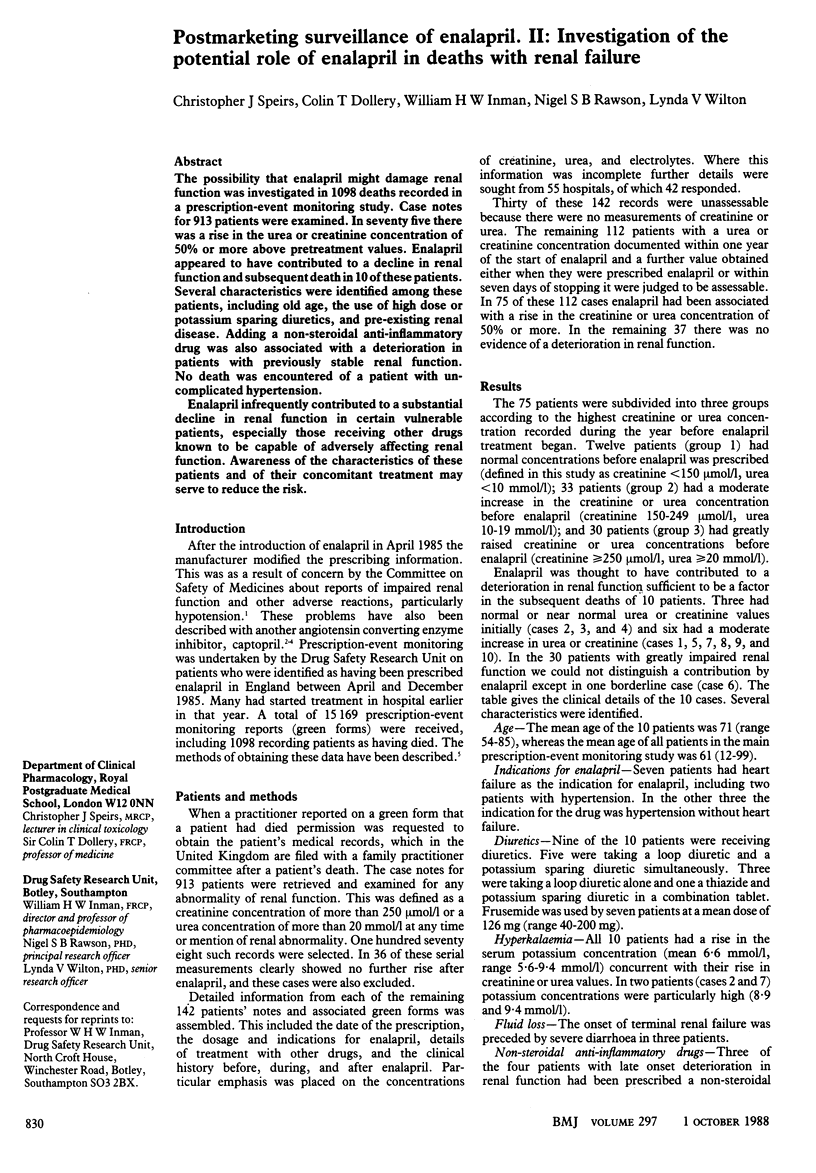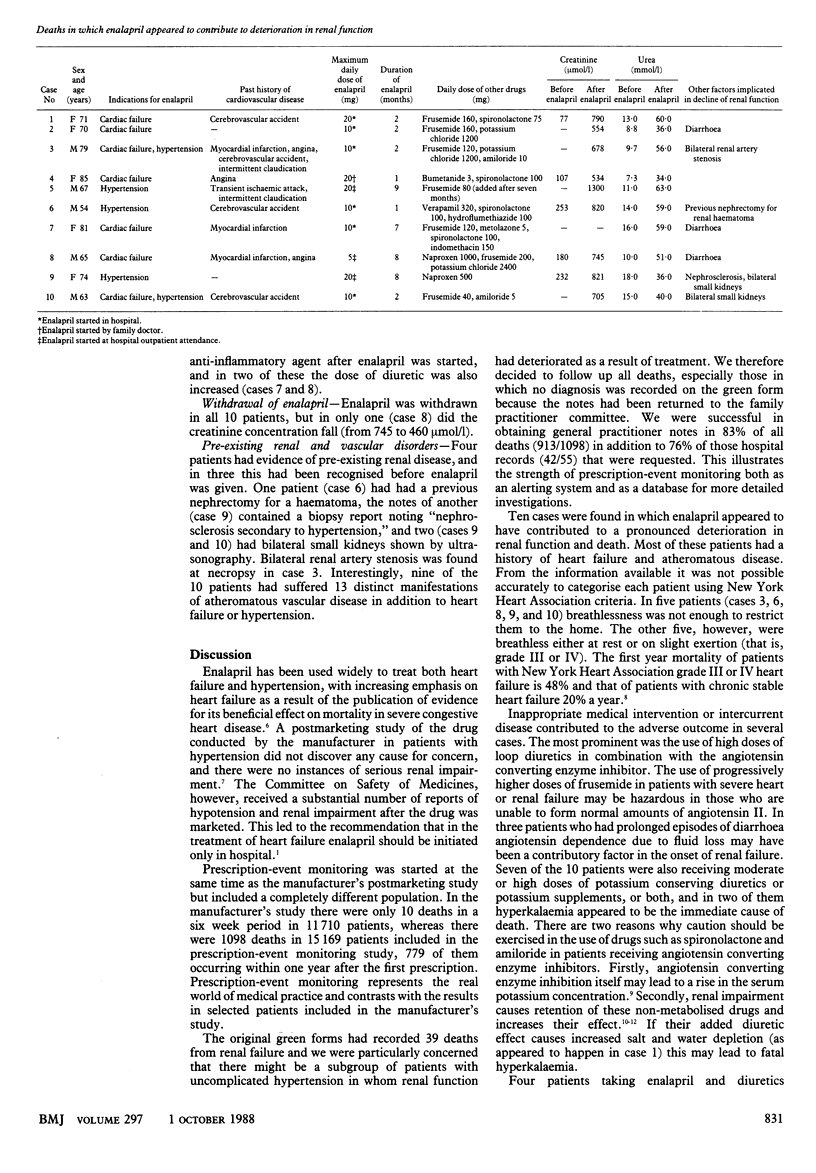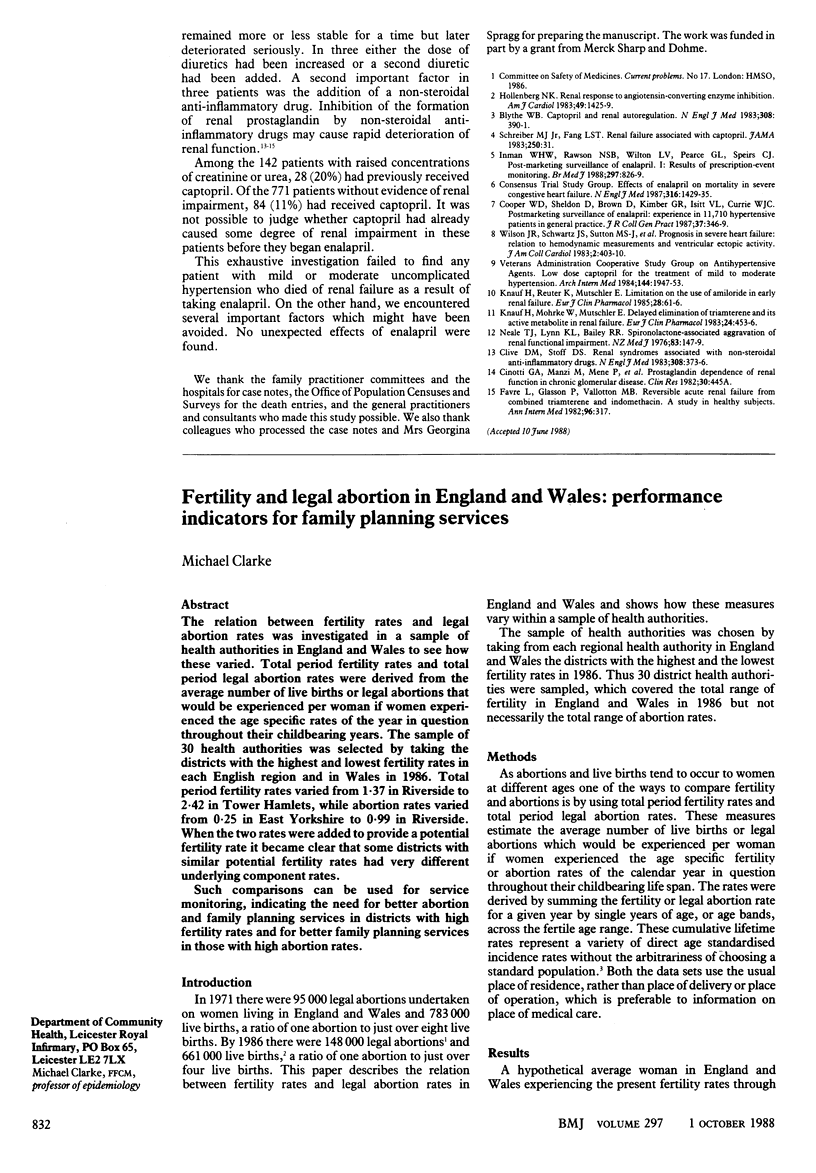Abstract
The possibility that enalapril might damage renal function was investigated in 1098 deaths recorded in a prescription-event monitoring study. Case notes for 913 patients were examined. In seventy five there was a rise in the urea or creatinine concentration of 50% or more above pretreatment values. Enalapril appeared to have contributed to a decline in renal function and subsequent death in 10 of these patients. Several characteristics were identified among these patients, including old age, the use of high dose or potassium sparing diuretics, and pre-existing renal disease. Adding a non-steroidal anti-inflammatory drug was also associated with a deterioration in patients with previously stable renal function. No death was encountered of a patient with uncomplicated hypertension. Enalapril infrequently contributed to a substantial decline in renal function in certain vulnerable patients, especially those receiving other drugs known to be capable of adversely affecting renal function. Awareness of the characteristics of these patients and of their concomitant treatment may serve to reduce the risk.
Full text
PDF


Selected References
These references are in PubMed. This may not be the complete list of references from this article.
- Blythe W. B. Captopril and renal autoregulation. N Engl J Med. 1983 Feb 17;308(7):390–391. doi: 10.1056/NEJM198302173080709. [DOI] [PubMed] [Google Scholar]
- Cooper W. D., Sheldon D., Brown D., Kimber G. R., Isitt V. L., Currie W. J. Post-marketing surveillance of enalapril: experience in 11,710 hypertensive patients in general practice. J R Coll Gen Pract. 1987 Aug;37(301):346–349. [PMC free article] [PubMed] [Google Scholar]
- Favre L., Glasson P., Vallotton M. B. Reversible acute renal failure from combined triamterene and indomethacin: a study in healthy subjects. Ann Intern Med. 1982 Mar;96(3):317–320. doi: 10.7326/0003-4819-96-3-317. [DOI] [PubMed] [Google Scholar]
- Hollenberg N. K. Renal response to angiotensin-converting enzyme inhibition. Am J Cardiol. 1982 Apr 21;49(6):1425–1429. doi: 10.1016/0002-9149(82)90355-1. [DOI] [PubMed] [Google Scholar]
- Inman W. H., Rawson N. S., Wilton L. V., Pearce G. L., Speirs C. J. Postmarketing surveillance of enalapril. I: Results of prescription-event monitoring. BMJ. 1988 Oct 1;297(6652):826–829. doi: 10.1136/bmj.297.6652.826. [DOI] [PMC free article] [PubMed] [Google Scholar]
- Knauf H., Möhrke W., Mutschler E. Delayed elimination of triamterene and its active metabolite in chronic renal failure. Eur J Clin Pharmacol. 1983;24(4):453–456. doi: 10.1007/BF00609885. [DOI] [PubMed] [Google Scholar]
- Knauf H., Reuter K., Mutschler E. Limitation on the use of amiloride in early renal failure. Eur J Clin Pharmacol. 1985;28(1):61–66. doi: 10.1007/BF00635709. [DOI] [PubMed] [Google Scholar]
- Neale T. J., Lynn K. L., Bailey R. R. Spironolactone-associated aggravation of renal functional impairment. N Z Med J. 1976 Mar 10;83(559):147–149. [PubMed] [Google Scholar]
- Schreiber M. J., Jr, Fang L. S. Renal failure associated with captopril. JAMA. 1983 Jul 1;250(1):31–31. [PubMed] [Google Scholar]
- Wilson J. R., Schwartz J. S., Sutton M. S., Ferraro N., Horowitz L. N., Reichek N., Josephson M. E. Prognosis in severe heart failure: relation to hemodynamic measurements and ventricular ectopic activity. J Am Coll Cardiol. 1983 Sep;2(3):403–410. doi: 10.1016/s0735-1097(83)80265-4. [DOI] [PubMed] [Google Scholar]


